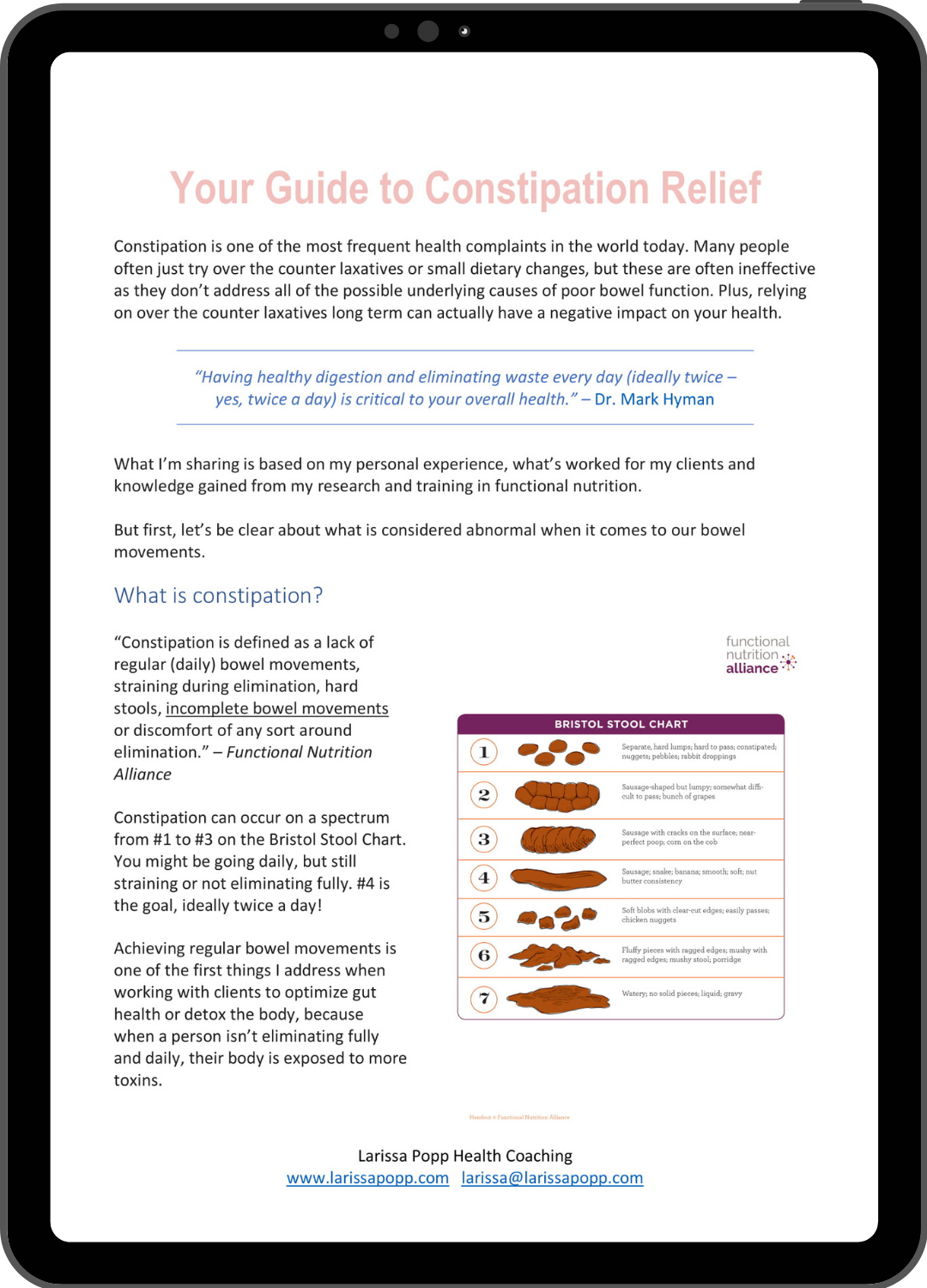Today’s epidemic of cancer is not predominantly genetic.
50-70% of cancers can be prevented through diet and lifestyle factors.
I just finished listening to some incredible interviews with leading integrative oncologists, wellness experts, nutritionists, spiritual teachers. I also heard some remarkable stories from cancer survivors who have embraced the power of food as medicine and the role of the mind-body connection in fighting cancer and preventing remission. These interviews were part of Hay House’s Healing Cancer World Summit.
At the same time, I am listening to Super Immunity by Dr. Joel Fuhrman and just finished How Not to Die by Dr. Michael Greger.
So, I want to share some of the key advice that was shared when it comes to dietary and lifestyle factors that can prevent many types of cancer. And I’ll also share some of the specific foods that have been shown to significantly lower ones chance of breast and prostate cancer.
How to Prevent Cancer, in a Nut Shell
When it comes to nutrition’s role in cancer and other disease prevention and treatment, the advice from all these experts is essentially the same: we need to focus on eating a more whole foods, plant-based diet.
“When we eat a nutrient scare diet, diseases flourish. With nutritional excellence, our body becomes a miraculous disease-resistant organism.” – Dr. Joel Fuhrman, Super Immunity
Unfortunately, most doctors are not trained in nutrition and much of the drugs that doctors prescribe are actually making patients worse. For example, calcium channel blockers people take to lower blood pressure are linked to doubling breast and prostate cancer risk after 10 years of use. The focus needs to first be on promoting the use of food as medicine and then using modern medicine to supplement when needed.
It’s up to YOU to take charge of your own health destiny — not just so you can live longer, but so you can live BETTER.
I like how Kris Carr — cancer survivor and host of the Healing Cancer World Summit — summed it up:
“self-care is health care”
Now I want to share my notes on the key take-aways from two of the interviews that focused on the use of food and lifestyle changes to prevent and beat cancer.
Anticancer Living: Transform Your Life & Health with the Mix of Six
Interview with Alison Jefferies and Lorenzo Cohen, from the Hay House Healing Cancer World Summit with Kris Carr
Alison and Lorenzo share what they call the “mix of 6” — 6 lifestyle factors that can both reduce the risk of cancer, recurrence of cancer, and improve outcomes for patients.
The mix of 6:
- Social support (and connection with others) à You need to find people who can support you on your journey to improve your diet and lifestyle.
- Stress à If you have stress and you’re eating a healthy meal, the impact of that meal on your body can be the same as an unstressed person eating a fast-food meal. This shows just how bad stress is for our health. One of the easiest and most effective practices for reducing stress is diaphragmic breathing – aka deep belly breathing. You can watch videos on Youtube to learn different techniques for this. Meditation is also powerful.
- Sleep à While it depends on the person, between 6.5 to 9.5 hours is recommended, as studies show that people who sleep this much are shown to live longer and be healthier.
- Exercise à Just exercising by going to the gym or for a one-hour walk once a day isn’t enough. Move more throughout the day; sit less; stand and walk more.
- Diet à A whole foods, plant-based diet is recommended. Whether its low fat or low carb it should be a low glycemic load, minimally processed foods diet. You should get as much of your caloric intake from nutritionally dense, calorically light plant foods.
- Redesign your dinner plate: plan your vegetables first; the veggies need to cover half your plate and then bring in the protein and a whole grain
- Protein: Minimize red meat and processed meat intake; get more of your protein from plants; aim to eat smaller amounts of meat such as 3 ounce servings of meat only 2-4 times per week; use meat as more of a condiment; eat clean animal protein – from animals that have been raised in a healthy way (the flesh of animals raised in an unhealthy way is coming from a sick animal; not only are people over consuming animal proteins but they tend to eat animal proteins that come from animals that are sick); the WHO, and other organizations, have classified processed meat as a carcinogen (meaning it carries the same risk for cancer as smoking) and red meat falls into a category just below that, esp. for risk of colon cancer.
- Bottom line: Eating a mostly plant-based diet is going to improve all aspects of your health so aim to eat more plants and less meat, and move away from processed meats and beef and towards fish and chicken raised in a healthy way — look for the certified humane seal to know that the animals were treated well and raised in a natural way.
- The environment à minimize your exposure to environmental toxins in whatever way you can; look at what you’re putting on your body and what you’re using in your house.
- Watch out for chemicals that are either 1) known carcinogens or 2) endocrine disruptors. Known carcinogens are substances that can literally cause cancer in and of themselves, and endocrine disruptors modify the natural hormonal system in your body which can be a risk factor for cancer.
- Use the precautionary principle: there’s over 85,000+ chemicals currently out there and very few of those have actually been tested for safety; it’s really important that you realize that you’re being bombarded with chemicals and that you actually have a lot of control in your own home environment.
- For those products that you use daily, try to replace as many as possible with safer products. Use EWG’s Skin Deep database to check the safety of your current products and to help you find healthier ones.
The Science of Food as Medicine
Interview with Dwight McKee, M.D., one of the leading integrative oncologists in the U.S, from the Healing Cancer World Summit
Dr. Mckee starts off sharing an epiphany he had a few years back: “Yes, the tumor is important, but that tumor also exists within a terrain and we can influence the terrain that the tumor is in.”
What should cancer patients be eating? (This is what you should also eat to prevent cancer)
Dr. McKee’s response: “the simple answer is whole foods, real foods. I don’t think that there is an ideal diet for humans and I don’t think that there is a single ideal diet for people with cancer. Probably the closest to that would be the Mediterranean diet (the old plant based one with some fish and occasional meat on celebration times; however, there are some people who have specific nutritional needs.”
He also advises: use A LOT of the spices you like!
“Spices are like the chemotherapy of the plant kingdom,” he says.
Every spice that’s been studied has significant anti-cancer potential. Spices are almost uniformly anti-inflammatory and uniformly have anti-tumor cell activity.
What foods should people with cancer avoid? (This will also help prevent cancer)
- Refined and processed foods
- Oils heated above their smoke point – When we heat oils that contain double bonds (unsaturated oil), they oxidize and that’s the same thing as becoming rancid. He recommends only cooking with coconut oil, ghee, and butter, below their smoking temperatures. In general, cooking is best done at the lowest temperature. And there is no such thing as healthy fried food.
- Red meat and factory farmed animals and animal products – one Harvard study (cited in Dr. McKee’s book) found that red meat eaters live on average 10 years less than those who don’t eat red meat. But there is also a big difference in the quality of meat. He suggests avoiding factory farmed meats (whether red meat, chicken or eggs from that setting) because it’s so far from the natural setting and so many drugs and chemicals are used and most of the feed is GMO corn and soy.
- Most types of farmed fish – though there are a few fish farms using the principles of nature, only using pens and providing small fish and algae as basis of the food system, most farmed fish is raised in an unnatural way and fed GMO corn and soy which results in less of the health omega 3 fatty acids.
- Refined sugar – cancer’s preferred food is sugar. Refined sugar is very different from the sugar that comes in the form of fruits which comes with fiber. Choose low glycemic load fruits. He says “berries are the biggest bang for your buck because they have the most anti-cancer compounds in ratio to their caloric load and are also low glycemic load, raspberries being one of the lowest.” But be sure to get strawberries organic as they are so heavily sprayed when raised commercially.
- Dairy – substitute dairy with non-GMO organic soy milk, almond, hemp, or other nut/seed milks; dairy is a very acid-forming food, even more so that some of the other animal proteins. He says “fermented is the best way to go with dairy.” But watch out for yogurts that are loaded with refined sugar – many of fruit flavored yogurts have more refined sugar in them than a candy bar or a soda. “Kefir and yogurt mixed with real fruit are probably the most beneficial in the dairy arena, and also ghee (clarified butter) is a pretty healthy cooking fat if you keep the temperature below the smoking point.” Many tumors are stimulated by a hormone found in dairy called IGF1, esp. dairy from cows treated with recombinant bovine growth hormone (BGH) is high in IGF1. Research has shown that people who are genetically very low in IGF1 have a very low incidence of cancer and live to very advanced ages.
The Bottom Line:
You shouldn’t wait until diagnosis to start eating healthier; you should start now.
If you want to significantly reduce your risk of cancer, and other diseases:
- Eat a whole-foods, plant-based diet;
- Make vegetables the star of your diet (not meat, refined carbs, & processed foods);
- Have at least a serving of cruciferous veggies each day;
- Stay away from refined sugar as much as possible;
- Minimize dairy, and opt for fermented dairy, such as kefir and unsweetened yogurt;
- Choose fish or chicken over red meat;
- Make sure to only consume high quality animal products, raised in a natural way (or from an animal raised in a healthy, natural way in the case of eggs and dairy);
- Avoid prolonged high-heat cooking for meat and fish (boiling is best, or a quick wok fry under 5 minutes); and
- Use lots of spices in your cooking for extra anti-cancer benefits (esp. turmeric).
In my next blog post I’ll be getting into more specific advice about what plant foods are best for preventing breast and prostate cancer in particular. Stay tuned!


